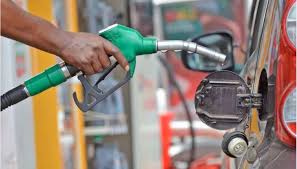
The Energy and Petroleum Regulatory Authority has reviewed fuel prices for the period of April 15- May 14.
Epra has announced a drop in fuel prices in the latest monthly review, offering relief to consumers.
On April 14, Epra lowered the prices of petrol, diesel, and kerosene, citing reduced global oil prices and favorable exchange rates.
In Nairobi, super petrol will retail at Sh174.63, diesel at Sh164.86, and kerosene at Sh148.99.
In Kisumu, the prices will range from Sh174.67 (super petrol), Sh165.24 (diesel) and Sh149.42.
Pump prices in Mombasa will be Sh171.39 for super petrol, Sh161.62 for diesel and Sh145.75 for kerosene.
Super petrol will retail at Sh13.85 in Nakuru, with diesel and kerosene going for Sh164.43 and Sh148.61, respectively.
In Eldoret, the pump prices will be Sh174.67 for super petrol, Sh165.25 for diesel and Sh149.42 for kerosene.
EPRA said the adjustments reflect actual changes in landed costs of imported fuel, which dropped in March. The move is expected to ease pressure on transport, manufacturing, and household expenses.
Fuel prices in Kenya are reviewed monthly based on global oil trends, taxes, and importation costs and are a key factor influencing inflation and economic performance.
"In the period under review, the maximum allowed petroleum pump prices for Super Petrol, Diesel and Kerosene decreases by Sh1.95/litre, Sh2.20/litre and Sh.2.40/litre respectively," EPRA said.
“The prices are inclusive of the 16% Value Added Tax (VAT) in line with the provisions of the Finance Act 2023, the Tax Laws (Amendment) Act 2024 and the revised rates for excise duty adjusted for inflation as per Legal Notice No. 194 of 2020."
The purpose of the Petroleum Pricing Regulations is to cap the retail prices of petroleum products which are already in the country so that importation and other prudently incurred costs are recovered while ensuring reasonable prices to consumers.
“EPRA wishes to assure the public of its continued commitment to the observance of fair competition and protection of the interests of both consumers and investors in the energy and petroleum sectors.”











